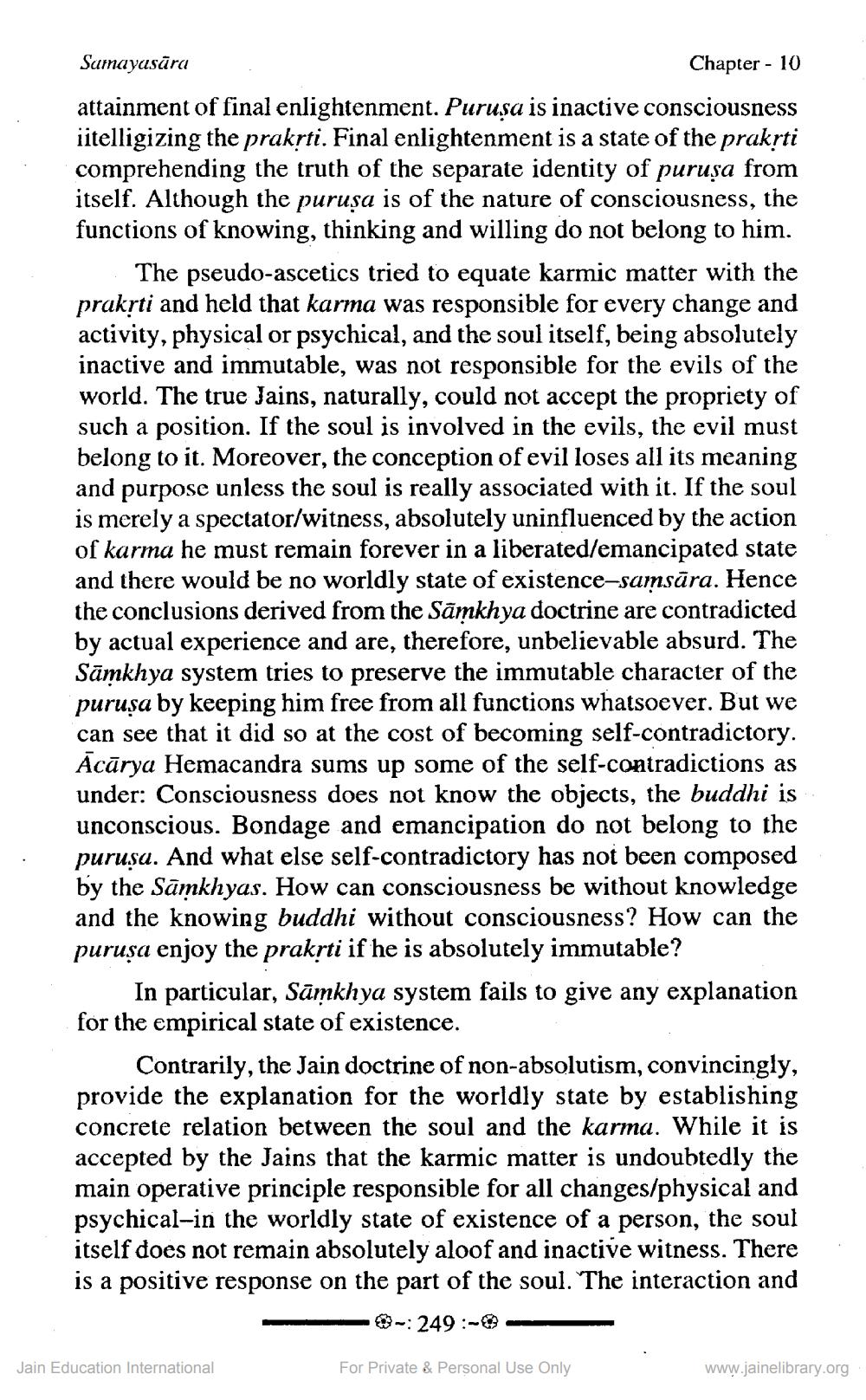________________
Samayusāra
Chapter - 10
attainment of final enlightenment. Purușa is inactive consciousness iitelligizing the praksti. Final enlightenment is a state of the prakrti comprehending the truth of the separate identity of purușa from itself. Although the puruşa is of the nature of consciousness, the functions of knowing, thinking and willing do not belong to him.
The pseudo-ascetics tried to equate karmic matter with the prakrti and held that karma was responsible for every change and activity, physical or psychical, and the soul itself, being absolutely inactive and immutable, was not responsible for the evils of the world. The true Jains, naturally, could not accept the propriety of such a position. If the soul is involved in the evils, the evil must belong to it. Moreover, the conception of evil loses all its meaning and purpose unless the soul is really associated with it. If the soul is merely a spectator/witness, absolutely uninfluenced by the action of karma he must remain forever in a liberated/emancipated state and there would be no worldly state of existence-samsāra. Hence the conclusions derived from the Sāmkhya doctrine are contradicted by actual experience and are, therefore, unbelievable absurd. The Sāmkhya system tries to preserve the immutable character of the purusa by keeping him free from all functions whatsoever. But we can see that it did so at the cost of becoming self-contradictory. Acārya Hemacandra sums up some of the self-contradictions as under: Consciousness does not know the objects, the buddhi is unconscious. Bondage and emancipation do not belong to the purusu. And what else self-contradictory has not been composed by the Sāmkhyas. How can consciousness be without knowledge and the knowing buddhi without consciousness? How can the puruṣa enjoy the prakrti if he is absolutely immutable?
In particular, Sāmkhya system fails to give any explanation for the empirical state of existence.
Contrarily, the Jain doctrine of non-absolutism, convincingly, provide the explanation for the worldly state by establishing concrete relation between the soul and the karma. While it is accepted by the Jains that the karmic matter is undoubtedly the main operative principle responsible for all changes/physical and psychical-in the worldly state of existence of a person, the soul itself does not remain absolutely aloof and inactive witness. There is a positive response on the part of the soul. The interaction and
- 249:-
-
Jain Education International
For Private & Personal Use Only
www.jainelibrary.org




